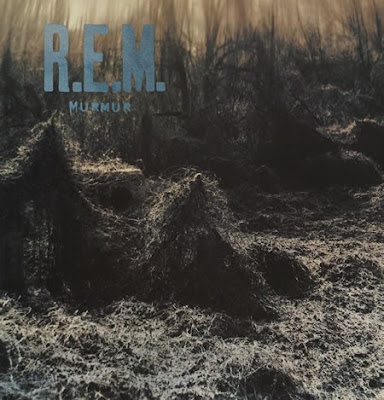"Not everyone can carry the weight of the world."
Yes, I realize R.E.M. was not part of the Paisley Underground scene, but it's impossible to ignore the major role they played in reviving the kind of Garage/Jangle/Power pop mix that became the staple of many American underground music scenes throughout the eighties and into the nineties, L.A. being no exception. With a sound comprised of Peter Buck's McGuinn-inspired jangle, Mike Mills' wonderfully melodic bass-work, Bill Berry's utilitarian drumming, and Michael Stipe's strange gravelly (and often indiscernible) backwoods preacher's vocal delivery, they transformed their myriad influences into a sound that would come to define alternative music throughout much of the eighties and beyond. On Murmur, their now-iconic debut, this sound is less polished and the production more murky than it would be on later recordings, which results in the album feeling quite untethered to its early-eighties context. While much has deservedly been written about brilliant tracks such as "Radio Free Europe" and "Talk About the Passion," the strength of Murmur lies in its lesser-known tracks, which are consistently first-rate because they rarely if ever conform to expectation. For example, "Laughing" starts out with Mills and Berry invoking some Dub-style rhythmic effects until Stipe's vocals come in backed by an acoustic guitar. While this song can certainly be labeled Jangle-Pop, it also boasts a dark minimalist feel that indicates a Post-Punk pedigree. This is even more the case on "9-9," which suggests Gang of Four as the main influence rather than The Byrds; this more abrasive, angular approach is an often overlooked component of R.E.M. 's early albums. Truly, Murmur's influence is incalculable, and taken on its own terms, the album itself continues to be revelatory nearly thirty years down the line.


